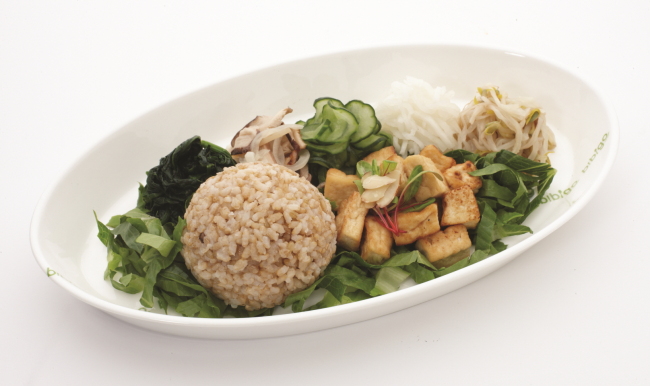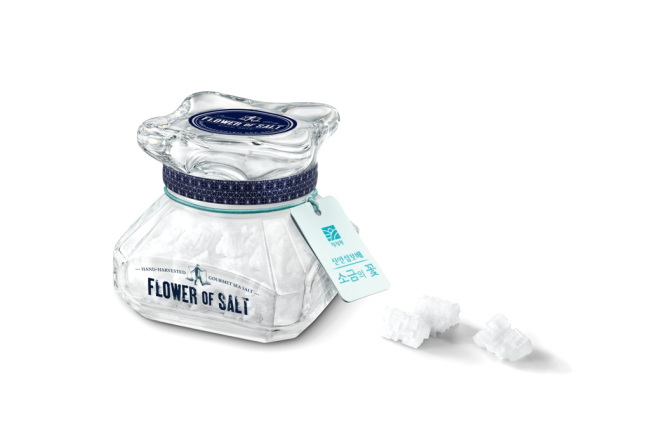“Less” and “simple” are two keywords that depict the latest food trend in Korea as more consumers seek foods with less sodium and artificial additives while still wanting to eat on-the-go.
CJ Foodville, a leading food business, is at the forefront of promoting healthy eating.
In line with the latest trend for “less,” Tous les Jours, a bakery franchise run by CJ Foodville, launched a new bread lineup this year called Pure, with which the company said it aims to deliver the original tastes of its ingredients, including milk and cheese.
 |
| Tous les Jours’ Pure cheese, bread and cake. (CJ Foodville) |
The Pure breads contain unprocessed cheeses such as parmesan, cheddar and Gouda, which are made from fermented raw milk.
“The well-being fad in the food industry started around 10 years ago, and now people have become more specific in what they eat than before,” said a CJ Foodville official.
“People these days are looking for foods that are less processed and less seasoned. They want chunks of pumpkin or sweet potato in their bread,” she added.
Bibigo, a dinning franchise restaurant of CJ Foodville, has developed Bibigo Rice, a salad-like bibimbap with more fresh veggies, including bean sprouts, spinach and mushrooms, than typical mixed rice bowls.
 |
| A bowl of Bibigo Rice with brown rice, pieces of sauteed tofu and assorted vegetables. (CJ Foodville) |
 |
| Daesang’s sun-dried sea salt Flower of Salt contains 20 percent less sodium than other salt products. (Daesang) |
Customers can choose one of four types of rice including black and brown rice, which are said to be good for digestion.
They can add pieces of bulgogi, chicken breast or tofu with a dollop of sauce, such as hot pepper paste or soy sauce, to their bowls of bibimbap.
Daesang, a leading food and sauce maker, has also introduced a wide variety of sauces and food products that cater to health-conscious consumers.
A premium sun-dried sea salt product, named Flower of Salt, named after Fleur de Sel, the high-quality salt gathered on the French island of Re, is a notable one.
Even though the premium salt, priced at 45,000 won ($44) per 80 grams, is twice as expensive as the average 80 gram packet of salt, it is being well received by customers as word has been spreading that it not only brings out the best in foods but also has around 20 percent less sodium and 30 to 50 percent less magnesium than other salt products.
The Korean sun-dried sea salt market grew in value from 130 billion won in 2013 from 92 billion won in 2009.
The firm also launched a series of instant rice soup products, carrying the brand name Cup Gukbap.
The various food items, including Jjampong Bap, Miyeokguk Bap and Kongnamul Gukbap, and their easy preparation method ― pour water into the cup and wait for a few minutes ― seem to have appealed to customers, an official from the firm said.
“As the number of single-person households is increasing, demand for instant soups and porridges made of fresh ingredients such as mushrooms, onions, eggs, and pumpkin are on the rise as well,” an official from the company said.
Ourhome, a food catering services firm, runs a “gluten-free day” program through which it serves gluten-free meals at some school and office cafeterias.
The firm uses rice for noodles instead of wheat or other ingredients containing gluten.
Gluten is a type of protein which is found in wheat, rye and barley, and is reported to cause vomiting, low blood sugar and allergies for some people.
The company plans to expand the program into all 800 cafeterias which it runs across the nation.
By Kim Young-won (wone0102@heraldcorp.com)

